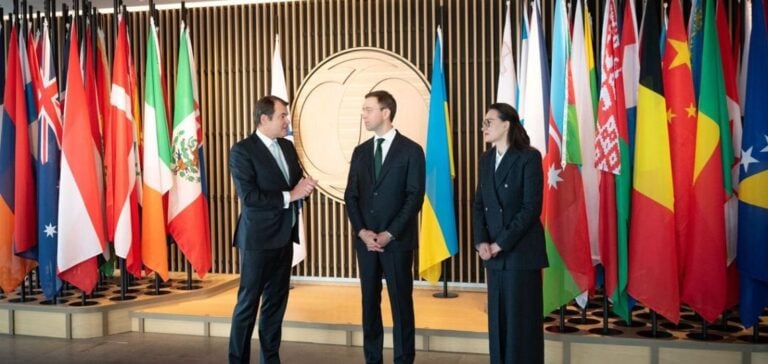Ukraine is intensifying its efforts to decentralize its energy grid, severely weakened by Russian attacks, with an €80 million loan provided by the European Bank for Reconstruction and Development (EBRD). This initiative, supported by grants from the Netherlands and the United States, aims to install approximately 100 MW of small-scale distributed energy generation capacities across the country.
The project, guaranteed by the Ukrainian state, is part of a resilience strategy to address the current challenges in the power sector. Financial contributions from the Netherlands (€9.5 million) and the United States (€12.5 million), through the EBRD’s Crisis Response Special Fund, complement this financing. These installations will deliver a reliable energy source to regions in western and central Ukraine, where energy and heat deficits are particularly critical.
Energy Solutions Tailored to Current Needs
The planned generation units, each with a maximum capacity of 10 MW, will use locally produced gas from Ukrnafta, Ukraine’s largest oil and gas producer. As the operator of the country’s largest fuel retail chain, Ukrnafta plays a pivotal role in this project, reducing pressure on the national grid while ensuring a steady supply of electricity for households and businesses.
In addition to addressing immediate energy needs, this initiative aligns with a long-term strategy to increase the share of renewable energy in Ukraine’s energy mix. The gas engines will later serve as a balancing mechanism for the intermittent nature of renewable energy sources.
Broader Support for Ukraine’s Economy and Society
Beyond energy infrastructure, the project includes training programs in management and leadership, as well as a dedicated initiative for veteran rehabilitation and socio-professional reintegration. These actions are part of the EBRD’s “Gender SMART” approach, focused on inclusion and diversity in investment projects.
Since the war began in 2022, the EBRD has invested more than €5.3 billion in Ukraine, including €1.5 billion in 2024. Its efforts focus on energy security, vital infrastructure, food security, trade, and the private sector, supporting the reconstruction of a country in crisis.





















